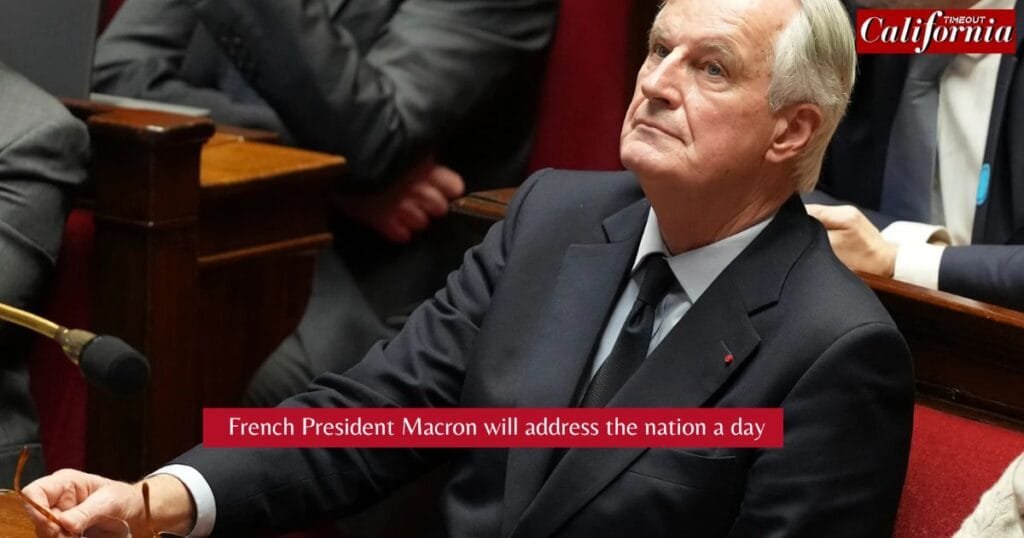The government has been ousted in France’s political crisis – but Paris’ problems have just begun!
Political Turmoil in France Deepens
French Prime Minister Michel Barnier resigned Thursday morning after his government was ousted in a historic no-confidence vote, escalating the political turbulence in France. This marks the first time a French government has been toppled in such a manner since 1962, signaling a challenging period for President Emmanuel Macron.
- These Knee Braces Help With Arthritis Pain, Swelling, and Post-Surgery Recovery
- Bitcoin hits a milestone: $100,000
- December 4, 2024, UnitedHealthcare CEO Brian Thompson shot and killed in New York City
Opposition Alliance Ousts Barnier
On Wednesday, 331 lawmakers from the leftwing New Popular Front (NFP) alliance and the far-right National Rally (RN) joined forces to support the no-confidence motion, far exceeding the required 288 votes.
The motion was triggered by Barnier’s controversial use of Article 49.3 of the French Constitution to pass the 2025 budget without a parliamentary vote. The budget’s proposed tax hikes and spending cuts had been met with fierce opposition.

Macron’s Gamble Backfires
The political crisis can be traced back to earlier this year when President Macron called snap parliamentary elections to strengthen his centrist alliance.
However, the elections resulted in a divided National Assembly, with the Ensemble centrists losing their majority to a polarized assembly dominated by empowered leftwing and far-right factions.
Barnier, appointed in September, quickly became a target for opposition forces. His ousting reflects deep divisions in French politics and a fractured parliament.
Urgent Need for a New Prime Minister
President Macron now faces the daunting task of appointing a new prime minister. Speculation suggests possible candidates include Defense Minister Sébastien Lecornu, centrist veteran François Bayrou, Interior Minister Bruno Retailleau, or former Prime Minister Bernard Cazeneuve.
Macron aims to announce a replacement by Saturday, ahead of a significant gathering of international leaders, including U.S. President-elect Donald Trump, for the re-opening of Notre Dame Cathedral.

Challenges Ahead for the New Leadership
Analysts predict that any new prime minister will struggle to navigate the polarized National Assembly. Immediate priorities include securing a provisional 2024 budget extension and amending the contentious 2025 budget to appeal to opposition factions—a seemingly impossible task.
Mujtaba Rahman of Eurasia Group noted, “The confrontation between the three, mutually-hating forces in the National Assembly will continue for many months with no early prospect of agreement on a new budget.”
Economic Implications
Political instability has raised concerns about France’s economic prospects. While financial markets have remained calm for now, with the CAC 40 index stable and 10-year government bond yields at 2.9%, analysts warn of potential volatility if instability persists.
The extension of the 2024 budget into 2025 is expected to result in a higher-than-planned deficit of 5.5% of GDP, far from the Barnier government’s target of 5%.
Charlotte de Montpellier, senior economist at ING, warned, “The debt will continue to grow, and the next government will face even greater challenges in managing public finances.”
Future Uncertain
The ongoing crisis may lead to fresh parliamentary elections as early as next year. Analysts estimate a 75% likelihood of elections, which could prolong political uncertainty.
ING has revised its economic growth forecast for France to 0.6% in 2025, down from 1.1% in 2024, citing the instability’s impact on business and consumer confidence.
As France enters this turbulent phase, the political and economic future of the nation remains precarious, with little hope for swift resolution.
Read also:-


